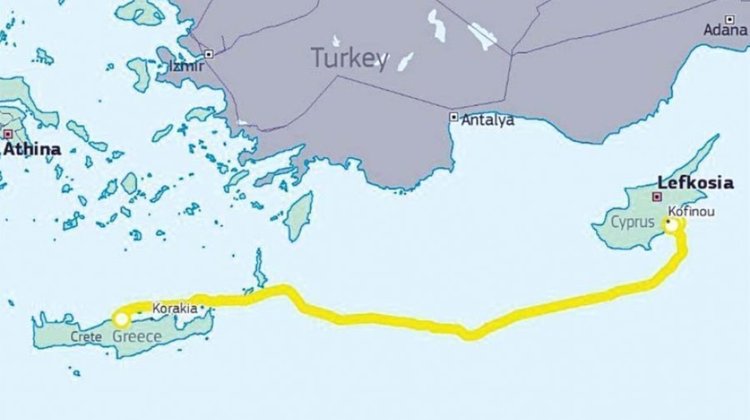Cyprus and Greece to share potential interconnector geopolitical cost 50/50
11:19 - 18 September 2024

Cyprus and Greece have reportedly reached an agreement to share the costs in the event that the Great Sea Interconnector (GSI) project, connecting the power grids of the two countries, is not completed due to geopolitical reasons, the Cyprus News Agency has reported citing sources.
In addition, the sources said that the cost allocation during the cable’s operation has also been agreed at 50/50 for each country, as opposed to 63% for Cyprus and 37% for Greece as stated in the current cross border cost allocation (CBCA) agreement.
During the construction period from January 1, 2025, to 31 December, 2029, the allocation of the construction costs will remain as provided in the current CBCA, 63% for the Cypriot consumers and 37% for the Greek consumers.
However, this week’s Cabinet decision to finance the project with €25 million annually will cover the potential cost burdening Cypriot consumers, while the decision provides for a strict ceiling of the cost at €25 million during the five-year construction period. Moreover, the government has received an official response that the €125 million to be provided do not constitute state aid.
Government sources said that should the cost that will burden Cypriot consumers exceed €125 million, this would be charged to the electricity bills only after the operation of the cable.
Following the decision taken by the Cabinet, the Cyprus Electricity Regulating Authority is expected to revise its negative stance with regard to the imposition of a tariff on the Cypriot consumer’s electricity bills.
Announcing the Cabinet decision, Minister of Energy George Papanastasiou noted that the first disbursement of the €25 million financing, will be included in a supplementary budget to be submitted to the Parliament for approval.
The interconnector’s total cost, considered as the longest and deepest subsea cable, amounts to €1.94 billion in current prices, of which €1.4 billion is associated with the cable to be provided by the French company Nexans, while €400 million concern a contract with Siemens over the converter stations in Cyprus and Crete.
So far, the European Commission has earmarked a grant amounting to €657 million for the project under the Connecting Europe Facility, while Cyprus has earmarked an additional €100 million through a loan by the EU Recovery and Resilience Facility. The government awaits the validation of the cost and benefit analysis submitted by the project promoter, the Greek IPTO, to use this amount as an equity investment.
Reliable sources also said that the Weighted Average Cost of Capital set at 8.3% for 17 years is considered as amply attractive for investors to join the project’s financing.
The same sources also said that a road map will be charted in the coming period concerning the milestone implementation. The Government considers yesterday’s decision as a landmark as under the IPTO’s CBA the interconnector is expected to reduce electricity prices in Cyprus by 40%.
On Thursday, Cyprus President Nikos Christodoulides will discuss the issue with the Greek Prime Minister Kyriakos Mitsotakis during a visit he is paying to Athens.

